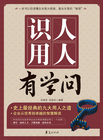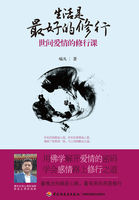Sic vita erat: facile omnes perferre ac pati:
Cum quibus erat cunque una, his sese dedere, Eorum obsequi studiis: advorsus nemini;Nunquam praeponens se aliis. Ita facillime Sine invidia invenias laudem. -TER., Andr., Act i. se. 1.
His manner of life was this: to bear with everybody's humours; to comply with the inclinations and pursuits of those he conversed with; to contradict nobody; never to assume a superiority over others. This is the ready way to gain applause without exciting envy.
Man is subject to innumerable pains and sorrows by the very condition of humanity, and yet, as if Nature had not sown evils enough in life, we are continually adding grief to grief, and aggravating the common calamity by our cruel treatment of one another. Every man's natural weight of affliction is still made more heavy by the envy, malice, treachery, or injustice of his neighbour. At the same time that the storm beats on the whole species, we are falling foul upon one another.
Half the misery of human life might be extinguished, would men alleviate the general curse they lie under, by mutual offices of compassion, benevolence, and humanity. There is nothing, therefore, which we ought more to encourage in ourselves and others, than that disposition of mind which in our language goes under the title of good nature, and which I shall choose for the subject of this day's speculation.
Good-nature is more agreeable in conversation than wit, and gives a certain air to the countenance which is more amiable than beauty.
It shows virtue in the fairest light, takes off in some measure from the deformity of vice, and makes even folly and impertinence supportable.
There is no society or conversation to be kept up in the world without good nature, or something which must bear its appearance, and supply its place. For this reason, mankind have been forced to invent a kind of artificial humanity, which is what we express by the word good-breeding. For if we examine thoroughly the idea of what we call so, we shall find it to be nothing else but an imitation and mimicry of good nature, or, in other terms, affability, complaisance, and easiness of temper, reduced into an art. These exterior shows and appearances of humanity render a man wonderfully popular and beloved, when they are founded upon a real good nature; but, without it, are like hypocrisy in religion, or a bare form of holiness, which, when it is discovered, makes a man more detestable than professed impiety.
Good-nature is generally born with us: health, prosperity, and kind treatment from the world, are great cherishers of it where they find it; but nothing is capable of forcing it up, where it does not grow of itself. It is one of the blessings of a happy constitution, which education may improve, but not produce.
Xenophon, in the life of his imaginary prince whom he describes as a pattern for real ones, is always celebrating the philanthropy and good nature of his hero, which he tells us he brought into the world with him; and gives many remarkable instances of it in his childhood, as well as in all the several parts of his life. Nay, on his death-bed, he describes him as being pleased, that while his soul returned to Him who made it, his body should incorporate with the great mother of all things, and by that means become beneficial to mankind. For which reason, he gives his sons a positive order not to enshrine it in gold or silver, but to lay it in the earth as soon as the life was gone out of it.
An instance of such an overflowing of humanity, such an exuberant love to mankind, could not have entered into the imagination of a writer who had not a soul filled with great ideas, and a general benevolence to mankind.
In that celebrated passage of Sallust, where Caesar and Cato are placed in such beautiful but opposite lights, Caesar's character is chiefly made up of good nature, as it showed itself in all its forms towards his friends or his enemies, his servants or dependents, the guilty or the distressed. As for Cato's character, it is rather awful than amiable. Justice seems most agreeable to the nature of God, and mercy to that of man. A Being who has nothing to pardon in Himself, may reward every man according to his works; but he whose very best actions must be seen with grains of allowance, cannot be too mild, moderate, and forgiving. For this reason, among all the monstrous characters in human nature, there is none so odious, nor indeed so exquisitely ridiculous, as that of a rigid, severe temper in a worthless man.
This part of good nature however, which consists in the pardoning and overlooking of faults, is to be exercised only in doing ourselves justice, and that too in the ordinary commerce and occurrences of life; for, in the public administrations of justice, mercy to one may be cruelty to others.
It is grown almost into a maxim, that good-natured men are not always men of the most wit. This observation, in my opinion, has no foundation in nature. The greatest wits I have conversed with are men eminent for their humanity. I take, therefore, this remark to have been occasioned by two reasons. First, because ill-nature among ordinary observers passes for wit. A spiteful saying gratifies so many little passions in those who hear it, that it generally meets with a good reception. The laugh rises upon it, and the man who utters it is looked upon as a shrewd satirist. This may be one reason why a great many pleasant companions appear so surprisingly dull when they have endeavoured to be merry in print;the public being more just than private clubs or assemblies, in distinguishing between what is wit and what is ill-nature.















